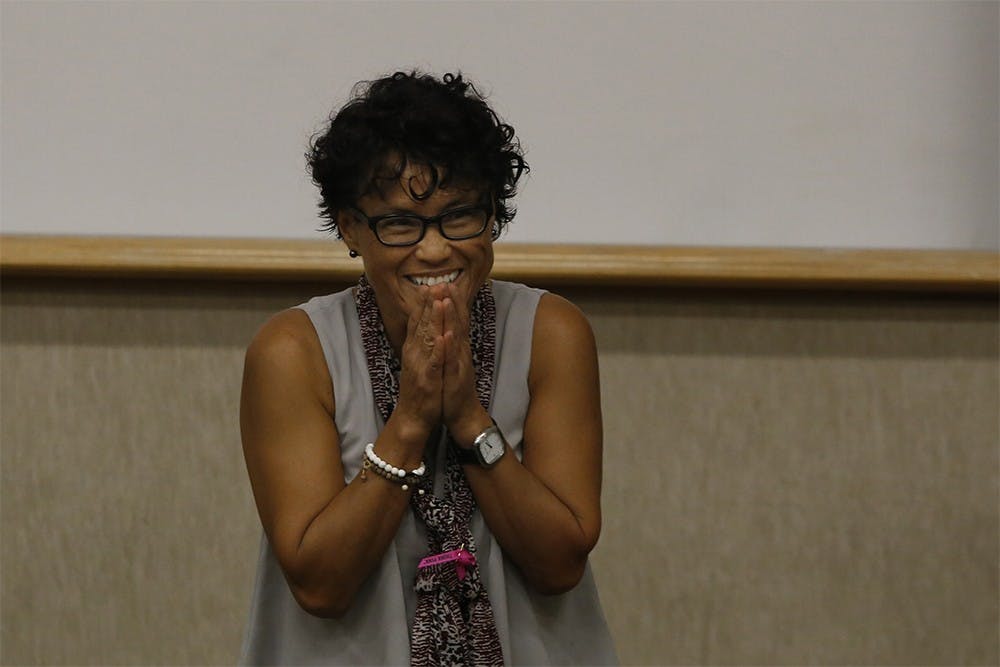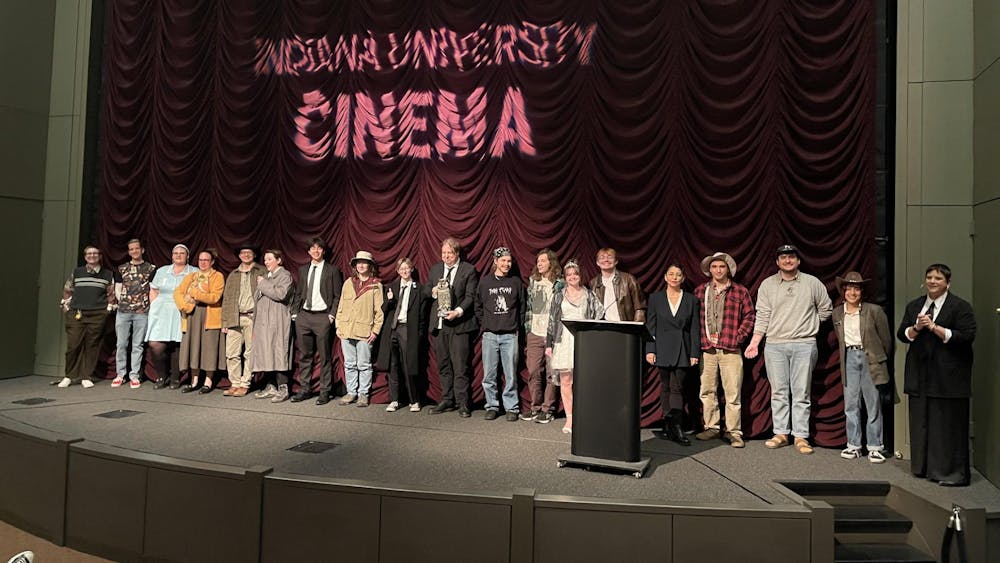She came out of the job with a new career goal.
“I came in washing dishes and getting a job to pay my rent,” she said. “Two years later, I had my first publication, first author, with a junior assistant professor that was working tirelessly in the lab to make tenure.”
Unguez completed her undergraduate and graduate degrees at University of California Los Angeles and her post doctorate at University of Texas at Austin.
Currently a professor of biology at New Mexico State University, Las Cruces, Unguez gave the 16th James P. Holland Memorial Lecture Monday night. Her lecture, titled “Extreme muscle plasticity in electric fish: cellular and molecular insights,” was attended by students and professors alike.
The James P. Holland Memorial lecture was created in 2000 in memory of beloved faculty member Professor James Holland, according to an IU press release. Before becoming a faculty member, Holland earned his doctorate from IU.
Clay Fuqua, chair of the biology department, spoke a few words about Holland before the lecture.
“He was really a gifted teacher,” Fuqua said. “That’s what everyone talks about with Jim Holland,” adding that he would memorize every student’s name even in large lectures.
The work that Unguez and others are doing has the potential to contribute to therapies that promote tissue regeneration in people who either have diseases or injuries that lead to muscle or nerve atrophy, according to the release.
Unguez’s research uses the regenerative property of electric fish to look at how stem cells develop into a certain kind of tissue or organ. She also looks at how signals from the nervous system can influence the fate of those cells.
“Dr. Unguez’s research elegantly takes advantage of the fact that electric organs and muscle are derived developmentally and evolutionarily from the same precursors to understand how cells differentiate into specialized tissues,” said Troy Smith, associate professor in the IU Department of Biology, in the release.
Smith also uses electric fish in his research, and introduced Unguez at the lecture. He touched on not only her research, but also on her commitment to mentoring and helping her students to succeed.
“Her excellence in research, in education and mentoring are reminiscent of Dr. Holland, so it’s very fitting that she’s our speaker this year,” Smith said.
Unguez began her lecture with a photo of a painting titled “Clairvoyance.” In “Clairvoyance” a man sits painting a blue bird in flight while looking at an egg.
“It continues to remind that one has to do the experiment and actually look at the data before we make any conclusions of what we think we’re going to get,” Unguez said, adding that “everything that I have hypothesized to get with electric fish has been wrong ... but I tell my students that it’s really extremely exciting.”
The fish Unquez uses is S. Macrurus, a slightly electric fish that can regenerate the tissues in its tail if it has been hurt. This includes its spinal cord, muscle and electric organs.
“They never bleed to death, which is an exciting thing,” she said. You can cut the fish almost in half and, while it’s not particularly good for the fish, it will survive, Unguez added.
Not a lot of tools have been created to study electric fish, but Unguez said she likes creating new tools.
“I have actually really enjoyed taking on the challenge of developing new tools for the species that I’m after,” she said, adding that in graduate school she learned not to follow the tools, but rather the question a person has.
One tool she has developed, with the help of engineers, is a backpack for the electric fish. This keeps the electrodes in the fish from falling off and does not restrict the mobility of the fish.
“This has taken me four years,” she said, adding that she learned to speak engineer for the project. The backpack now also has an electrical remote, so they can remotely change the electrical patterns in the backpack.
“Now that we have this backpack, we’re going to try all kinds of things,” Unguez said.






